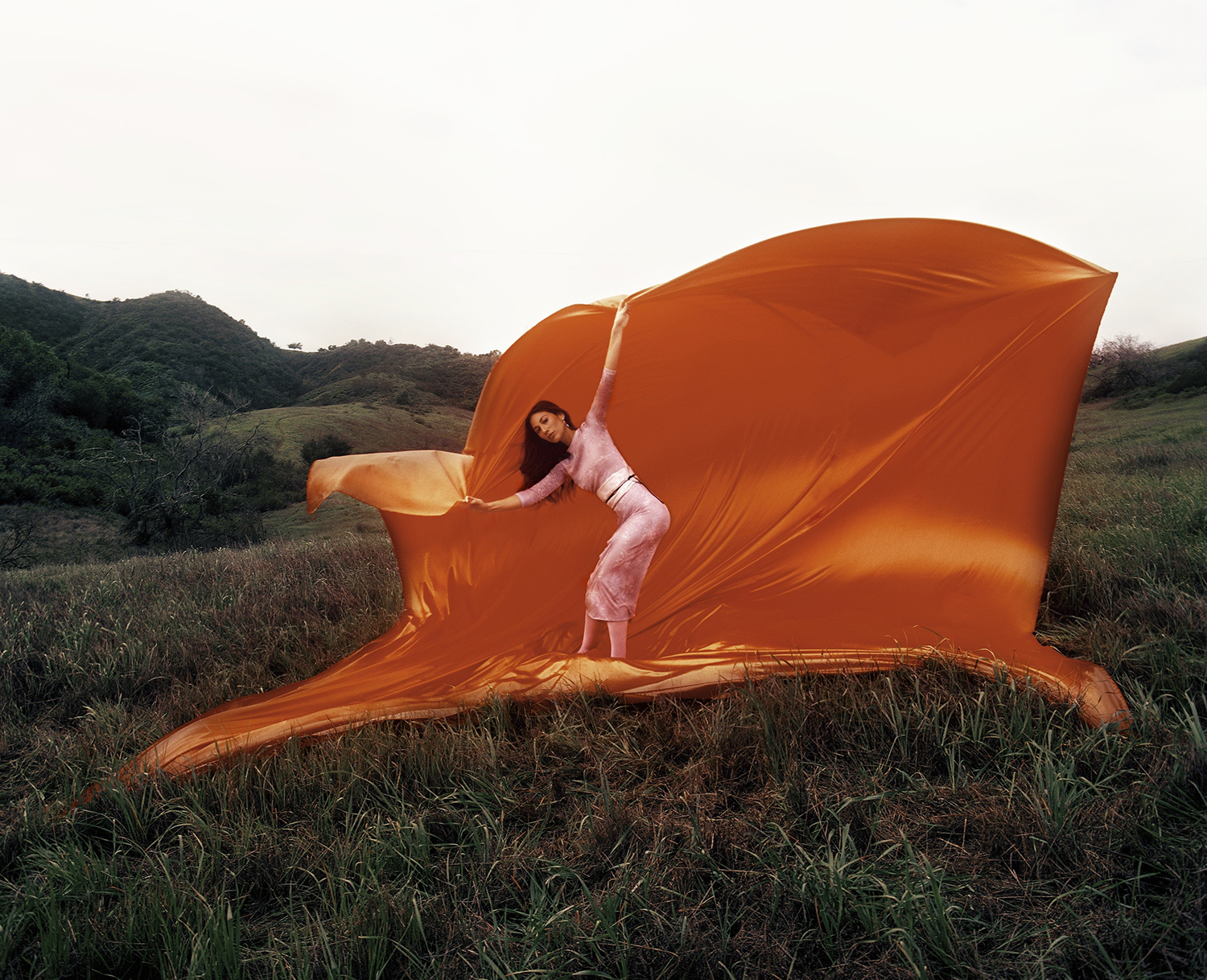Girl and Girl frontperson Kai Aubort discusses making the band’s debut album ‘Call a Doctor,’ what the concept at its core, and how that inspiration has affected his own life outside of music.
Stream: ‘Call a Doctor’ – Girl and Girl
A lot of what I do with Girl and Girl feels pretty dramatic and sort of character driven, so it felt right to get concept-y and theatrical.
Australian indie rock band Girl and Girl is ready to take the world by storm.
Maybe taking the term ‘garage rock’ a little too literally, the band formed out of after school jam sessions in the garage of frontperson Kai Aubort’s mother. There, Aubort and guitarist Jayden Williams were soon joined by his Aunty Liss, who offered to sit in on drums, and eventually bassist Fraser Bell joined in to round out their sound. From their first release, 2021’s energetic A Typical Friday Night EP, the band has been making a name for themselves, rising to prominence through the ranks of the Australian indie rock scene. They’ve become particularly known for their live performances, where Aubort’s dramatic stage presence can perfectly encapsulate the descriptive nature of their lyrics. The following EP, 2022’s dynamic Divorce, saw Girl and Girl continue to hone their skills and craft their image, attempting to capture their live energy on a record. All of this culminates in the band’s debut album, Call a Doctor (out May 24, 2024 via Sub Pop).
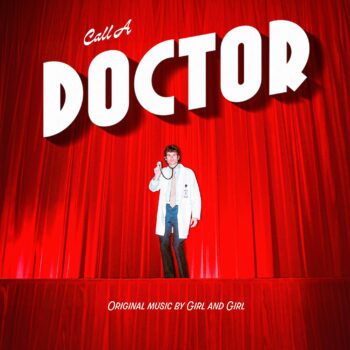
Drawing inspiration from musical theater and a lifetime’s worth of mental health struggles, Girl and Girl craft a whole story out of the concept of being stuck too far in your own head. The record follows the protagonist, a ‘Mr. James,’ as he slowly works on improving his mental health – starting from when he is hospitalized due to his struggles, all the way to finally finding inner peace and connecting with the world. The frenetic energy and sense of urgency felt throughout the record is a direct reflection of this character as he embarks on his journey of personal growth. It ebbs and flows with his mental state, and becomes more stable as the record nears its close, mirroring Mr. James’s more stable mind by the end of the record.
From the first track, “INTRO,” listeners are immersed in the world Girl and Girl have built for their album. The way Aubort monologues over the instrumentation is similar to how characters in stage productions segue from one musical number to the next while trying to utilize the least amount of dialogue possible.
This same monologuing is heard on the next track, “Call a Doctor,” but his tone has changed, injected with a frenetic sense of urgency. The sudden shift in tempo reflects how the point of view has shifted between the two songs. The quicker tempo of the track and the at times tangential lyrics are designed to reflect Mr. James’s mental state at the moment. At the same time, the lyrics showcase some of Aubort’s cheeky wit with lines like “Purge these thoughts of death and hell, god I hope this motherf**ing record sells!”
Now that Mr. James is out of the hospital, his real journey can begin.
From here he is able to not only reconnect with his family, but most importantly himself. “Maple Jean and the Anthropocene” can be seen as the centerpiece of the record; getting at the crux of how to ignite personal growth. The lyrics recount the time Aubort hit a wallaby with his car, and how that experience forced him to contemplate how relationships change as we change, even though we (humanity as a whole) consistently remain selfish through it all. The quiet-loud-quiet format of the track expresses the exasperation we all feel from constantly seeing the world crumble around us, feeling ourselves crumbling on the inside and yet everyone else seems unaffected by it all.
“Mother” shares a similar message, only with less broad implications. The track explores how our familial relationships change as we grow. The way the vocals and instrumentals of the track pogo in energy reflects how that relationship changes over time.
By the end of the record, few doctors need to be called. I wouldn’t go so far as to say that Mr. James is cured of his mental illness, but he is in a much better state than he was at the beginning. The penultimate track, “Our Love (Ours Only)” finds the protagonist mulling over a past relationship. The slower tempo at the beginning of the song creates a pensive atmosphere that reflects the contemplative nature of the lyrics, in which the protagonist is thinking about his relationship dynamics with his newfound clarity of mind.
“OUTRO” sees the story end, for now. Similarly to “Our Love (Ours Only),” it starts with a slower beat to create a reflective atmosphere, allowing Mr. James and the listener to think back on what has been said and done. Now that he is able to think clearly, he can say goodbye to his unwell self. Rather than feeling anger towards that version of himself, he forgives and is ready to move on, leaving on a positive note with “You’ve been swell / Ahhh what the hell / You’ve been dear.”

Atwood Magazine connected with frontperson Kai Aubort of Girl and Girl to discuss the band’s debut album, Call a Doctor, diving into the stress that came with making the album, what inspired the concept and storyline at the center of it, and how that inspiration has affected his own life outside of music.
In the end, Aubort mulls over why having mental health as a central theme will potentially be so impactful with listeners.
“I’ve never been more proactive about my mental health than I am right now,” he shares. “Making an effort to journal, open up to people and exercise. And touring too, I’ve been putting a lot of work into a more positive mindset there… I don’t think I’m the only one going through these things, and hopefully it’s somewhat consoling for people to hear that they’re not alone.”
Read our full interview below!
— —
:: stream/purchase Call a Doctor here ::
:: connect with Girl and Girl here ::
Stream: “Mother” – Girl and Girl
A CONVERSATION WITH GIRL AND GIRL
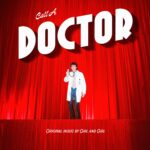
Atwood Magazine: You mentioned that the pressure of recording the album in only two weeks translated to the stress that is heard on the record. Was that intentional? You said the record is about being tense, so was that stress a sound you were initially going for in the studio?
Kai Aubort: I hadn’t intended to stress myself, but then again I never do, going into it I thought 2 weeks was going to be heaps of time! Previously we’d never spent more than 3 days in the studio, just live tracking as fast as we can. So this was a really new experience for us and I was pretty calm about the amount of time we had. I think the tension and stress came more from living and recording in the same place, never really getting a break from the record. But that being said we ended up using every second of that two weeks right up until the final day.
Did living and working in the studio affect your songwriting process in any way?
Kai Aubort: We had everything pretty much written before getting into the studio, so it didn’t have much effect there, but I think that the stress can definitely be heard in the final recordings. I’d find it really hard to wind down after a day of recording, when you’re doing this repetitive action all day long, it gets impressed into your brain and makes me feel so wired and hard to unwind, especially when that action is so loud. And it’s more difficult when you don’t leave that environment, just take half a step and go to sleep, I’d find myself awake staring at the wall ’til 3 AM most nights, and felt pretty knotted up by the end of the two weeks.

When you’re doing this repetitive action all day long, it gets impressed into your brain and makes me feel so wired and hard to unwind, especially when that action is so loud.
What is your songwriting process like? You mentioned before that you can’t write what you want to write, what does that mean? Are you referring to writer’s block or something like that?
Kai Aubort: Yeah I kind of need to wait for inspiration to strike, I can’t just sit and write, and certainly not about whatever I want. Like I’ll sit and try to write a happy song, and out comes a nursery-esque musical number about the wallaby I hit with my car last week.
Call A Doctor reminds me a lot of the concept albums and rock operas made in the ‘70s, like David Bowie’s The Rise and Fall of Ziggy Stardust and the Spiders from Mars or The Who’s Tommy, with its cohesive storyline and narrative structure. What inspired you to create this whole concept and story for the album, especially with this being your debut album?
Kai Aubort: I had a love for musical theatre instilled in me at a pretty young age, and a lot of what I do with Girl and Girl feels pretty dramatic and sort of character driven, so it felt right to get concept-y and theatrical. The doctor theme was already pretty recurring in a lot of my lyrics and day to day life and thoughts (#hypochondriac), so it made the most sense to tie it all together with that.
A lot of what I do with Girl and Girl feels pretty dramatic and sort of character driven, so it felt right to get concept-y and theatrical.
Did writing about mental health force you to be honest about your own mental health state at the time?
Kai Aubort: Yep! I try to be as honest as I can with [Girl and Girl] lyrics, mostly because of how helpful it is for me to work through particular things, but also because a lot of the time people find points of connection with the honesty too. And while it’s honest, I generally struggle to deliver it in a sincere tone, hence the dramatics, and I think in a way that makes it easier for people to listen to too, it’s a softer blow, confronting pretty serious topics with my big vampire voice.
Do you feel like your relationship with mental health changed after making the record? Like do you feel like you’ve become more aware of the state of your mental health (or how much time you spend in your head) from making the record?
Kai Aubort: Oh yeah 100%, I’ve never been more proactive about my mental health than I am right now. Making an effort to journal, open up to people and exercise. And touring too, I’ve been putting a lot of work into a more positive mindset there. The record reflects a lot on my previous thought patterns of wallowing, and being a little too dramatic about particular situations. And now as we start to play the tracks live I’m having to continually reflect upon these patterns, keeping them at the forefront of my mind helps fuel the fire of me wanting to improve them.
Just checking in on the #GetWellWithGirlAndGirlChallenge – how has it been going? Any new habits you all have been forming? Has touring thrown your schedules off too much in this regard? Have you heard any positive feedback from fans about their own wellness journeys from it?
Kai Aubort: Haha it’s going good! Running has been a life changer for me, I’d convinced myself I wasn’t an active person for the first 24 years of my life, but turns out I am! And god is it good. The challenge didn’t really become the viral sensation that I’d hoped, maybe too wordy, but we definitely had some really sweet responses of people wanting to work on themselves too. And yep, touring has been intense, for me anyway. I love playing live of course, but all the in-between stuff I find really difficult, it’s really hard to focus on anything other than the shows, so managing your personal life back at home can get pretty tricky. I’ve been doing a lot of work on maintaining a more positive mindset while on tour, which makes the whole process a far more enjoyable experience.

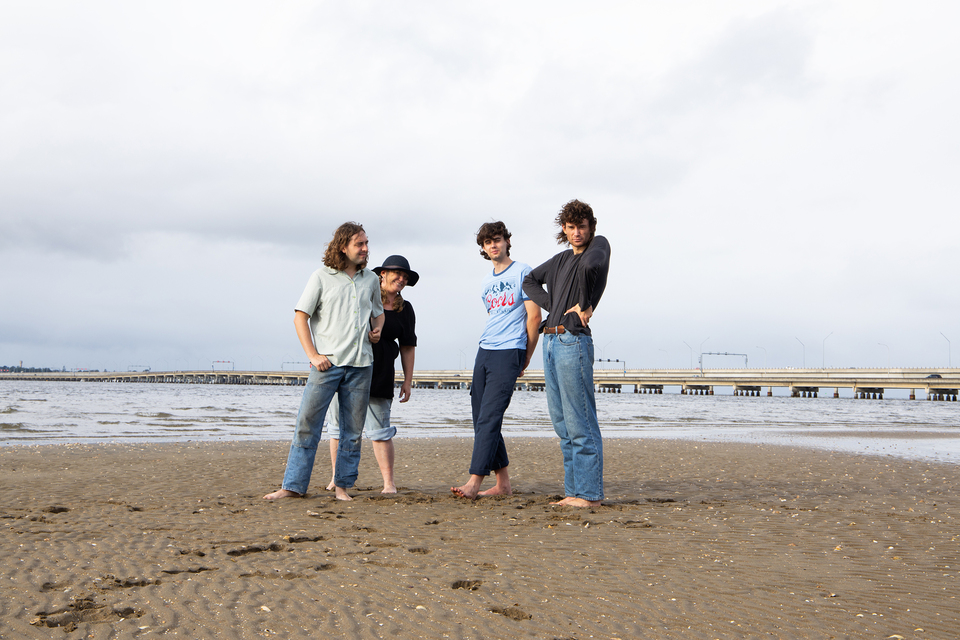
I’ve never been more proactive about my mental health than I am right now. Making an effort to journal, open up to people and exercise. And touring too, I’ve been putting a lot of work into a more positive mindset there.
How would you say other art has influenced you as an artist? (film, books, games, etc.)
Kai Aubort: That’s an interesting one, I guess musical theater is an obvious one here, all that theatricality, and I guess more generally films and books can influence how you think, which in turn can influence how I write. Another specific example is the title track of the record, “Call a Doctor,” I was channeling Mr. Fox from Fantastic Mr. Fox, one of my favourite films.
What is your biggest strength as a band?
Kai Aubort: I think we’re all on the same wavelength a lot of the time, there’s a shared sense of humour, everyone’s happy to take it easy and understands when someone needs a bit of space.
What’s something that you’ve learned about yourself while making the record?
Kai Aubort: It felt like such a significant moment in my life, to me it was the hardest I’d ever worked on a project, the most focussed I’ve had to stay for the longest amount of time, just like pure immersion and dedication for two weeks. Which I’m incredibly proud of, and I tend to struggle with the idea that I work hard, so it’s nice to have something I can point to and say to myself, ‘Yeah, hey you are putting in the work, you deserve to be here,’ all that sort of stuff.
What are you hoping your listeners get from this album?
Kai Aubort: Connection on an emotional level would be really cool and nice, I don’t think I’m the only one going through these things, and hopefully it’s somewhat consoling for people to hear that they’re not alone.
— —
:: stream/purchase Call a Doctor here ::
:: connect with Girl and Girl here ::
Stream: “Oh Boy!” – Girl and Girl
— — — —

Connect to Girl and Girl on
Facebook, Twitter, Instagram
Discover new music on Atwood Magazine
© James Caswell
:: Stream Girl and Girl ::

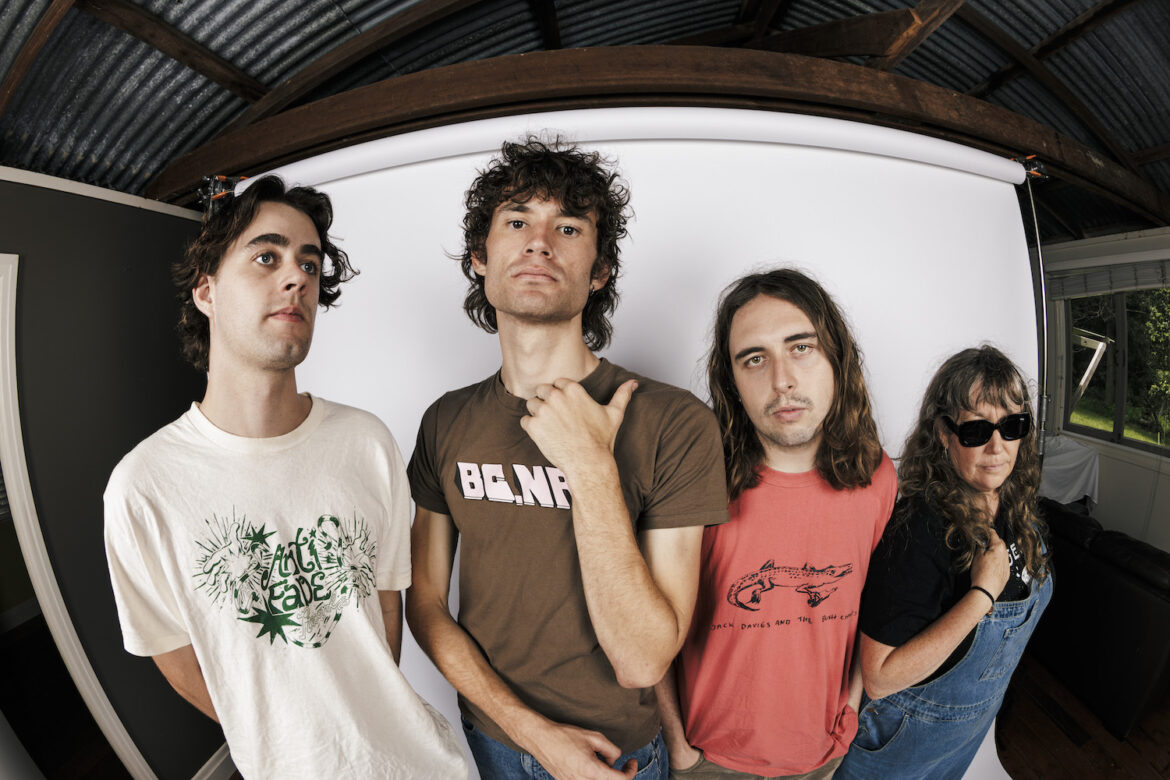
 © James Caswell
© James Caswell




